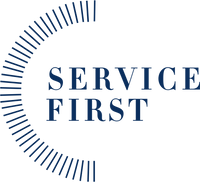
Panagis Galiatsatos

"I'm a physician at Johns Hopkins and I get asked the question constantly, "why did you want to become a doctor?" I've realized over time that this isn't the question to be asking. It doesn't get to the heart of the matter. The right question to ask is "what TYPE of doctor do you want to become?" If you're a doctor, it means your personality matches the morals and ethics required for you to be in this type of profession. Then what you spend your career figuring out is what you want your contribution to be.
I'm the son of immigrants growing up on the Greek side of Baltimore. Johns Hopkins has been my backyard my whole life. At 26, I was lucky enough to get my training there. Now, I could give back to my community—my family—the way it always gave back to me. I felt like I was going to do a lot of good. But, then I realized health and medicine don't necessarily go hand in hand. I realized as my community was coming in to see me, that my education had a massive gap. So in 2013, I created "Medicine for the Greater Good." It's a community engagement initiative that helps professionals in the field understand how to interact with both medicine and patients' real needs.
Flash forward to present day. The state goes into lock down on a Friday due to Covid. On Saturday, I got a phone call from a colleague who handles what we call the "forgotten town of Baltimore." I knew immediately why he was calling. This pandemic was going to hit this community hard, largely comprised of African Americans and Latinos. The Governor was talking about mass screenings and testing. But, there are many populations in America that have lost trust around medical practices like this. The other component to consider is the ability to quarantine is for the privileged. You need a job and a housing situation that's stable to make this possible. For the disadvantaged socioeconomic groups, they can't do this. We had to figure out a way to get this community to first trust us, and then understand that they needed to find ways of isolating and following the medical advice.
That Monday, we launched a simple initiative—leadership community calls. One hour of Covid updates and facts, a discussion around issues and hurdles and how we could allocate resources most effectively. The first one had 103 leaders on the line—each one having thousands of people they can reach. We call them community calls but really, the community called on US to take action.
This has transitioned into my role in the critical care unit helping patients with Covid. Those I’m treating say the same thing—they didn't have options to stay safe. My background in medicine is for the disadvantaged. We've been talking about these things for the last 10 years of my career. The pangs of disparity have always been there and the virus has made it even more apparent. This is affecting the most vulnerable demographics—African Americans and Latinos. This is one of the first times in my career where I've felt totally helpless at times. All we have right now is supportive care with our fingers crossed that people get better. This is not the same as other things we've seen. And it's disproportionate in who it's affecting due to the systems we have set up from a historical perspective. We are requesting global behavioral changes community wide, as we simply don't have a vaccine.
Because I'm a doctor, one assumes I'm on the front line. But, I should technically be the LAST in line. Community leaders are up front and can help to protect their citizens. My role is to help educate and treat it, when it gets to a point like this with Covid. From critical to community care, this has been what's given me identity. This goes back to the beginning of my story—this is the type of doctor that I am. My heart continues to tell me I'm doing the right thing."
Panagis Galiatsatos is in a unique role, as he is one of the few doctors in the United States who's dedicated his life to bridging the gap between community and critical care. He is paving the way every day in his academic work to help educate us on the topic and to keep us safe on the community level. To him, service means ensuring that you are true to yourself in a calling that is greater than you—service is a true outlet for good.






